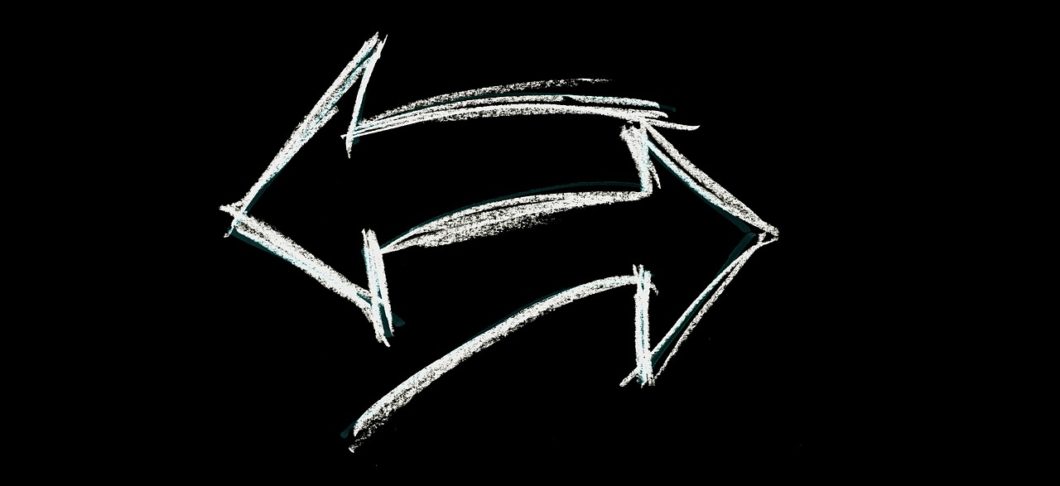We all know that some words have lots of different meanings.
I remember one student, very early in my teaching career, asking me what “to” meant.
That was a very difficult question to answer.
English is full of these sorts of words.
The word “charge”, for example, can mean “put electricity into your
phone”, “start running towards the enemy with your other soldier friends”, “tell someone how much they need to pay you”, “tell someone why they’ve been arrested” or “give someone a task to do”.
Some of these kinds of words are particularly weird and interesting because they have two meanings that seem to contradict each other – they mean the opposite, or near opposite, of what they are.
Here are ten of my favourite contronyms.
1. Bill
Here’s a fresh, crisp 100-dollar bill:
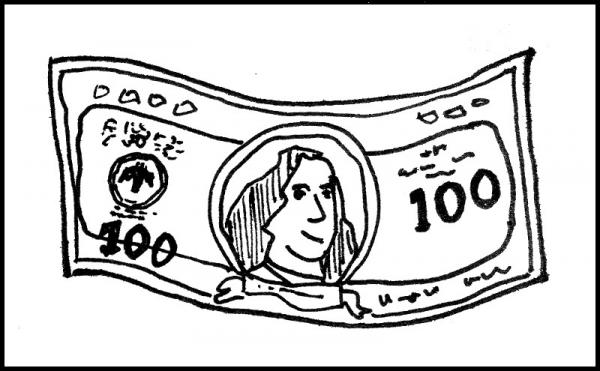
Here’s a bill for that massive meal you had the other day:
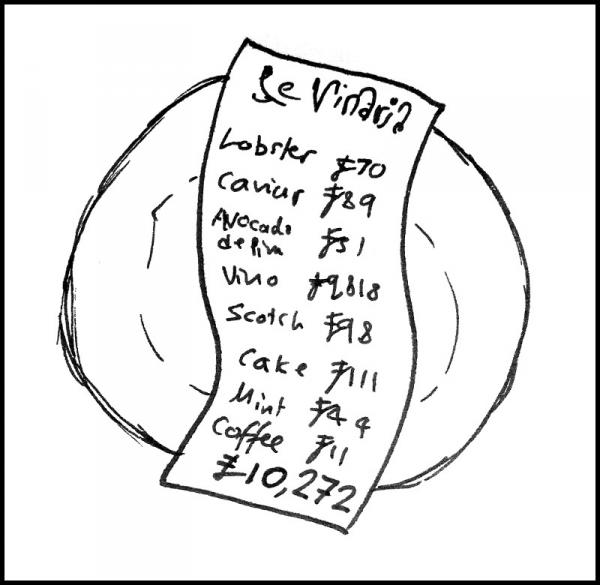
I know which one I’d rather have.
You can also use bill as a verb:
“It looks like you ate and drank everything in the mini-bar. Including the shelves. We will, of course, be billing you for that, sir”.
And here’s Bill Clinton. Because, why not?

2. Bound
This can mean both “going to” and “stuck”.
If you’re homeward bound, you’re on the way home.
If you’re housebound, you’re stuck at home without any ability to leave. (Maybe you’re ill or under house arrest. I hope you’re not. Especially the latter.)
3. Fine
Fine silks! Fine food! Fine company! And general finery. (Yes, “finery” is a real word.)
These are the very best quality things in life.
Think about what kings and Russian oligarchs enjoy. Only the best.
However, if you ask a British person what she thinks about the
painting you made of her, and she says, “It’s fine.”, then that’s probably not good.
Most of the time “fine” means “just about good enough”.
But some of the time it means “Nah … I don’t really like it.”
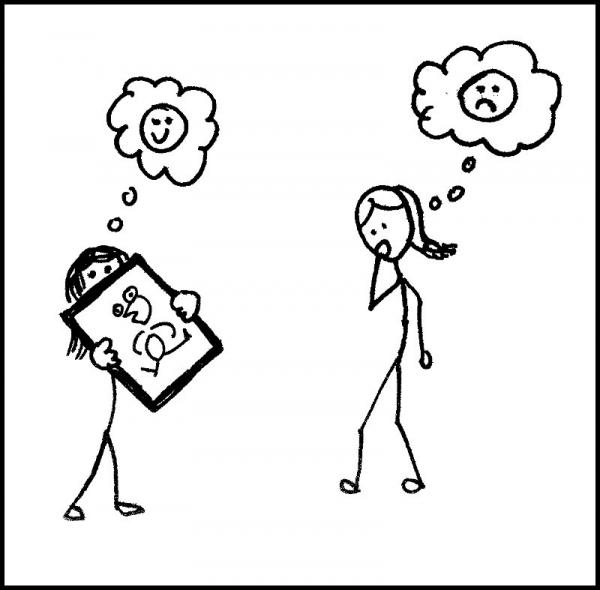
4. Back up
You’re going to tell the boss that you deserve a higher salary. Good for you!
But you’ll need some support. So you ask your colleagues if they’re going to back you up.
It can mean “support”.
But then, just before you go into the boss’s office, one of your colleagues decides not to support you any more. They’ve decided it’s not worth the risk (chicken!).
Then they’re backing up – it means “retreat” or “go backwards”.
You could say that they’re backing up from backing you up. (You can also say “back out”.)
However, it’s usually used to describe something more physical, like a car coming out of a driveway.
5. Buckle
Are you wearing a belt?
Look at it now! But make sure no one’s watching you.
What’s that thing that connects the two ends of your belt together?
That’s a buckle.
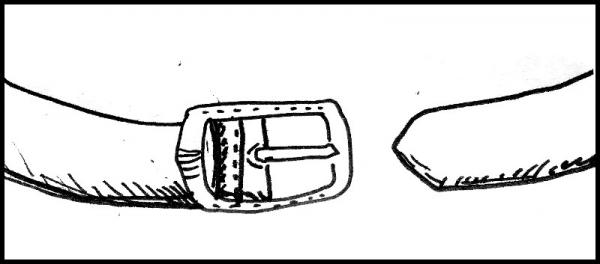
It can also be a verb, meaning to tighten or to connect two ends together (like a belt or a strap on your bag). Especially useful when you’re bungee jumping, parachuting or rock climbing. There are a lot of buckles that you definitely want while doing these activities.
However, it can also be used to describe things falling apart or collapsing.
If you buckle, it means you give up – the pressure got too much.
We often use it with terms like “pressure” or “strain”.
“The bridge was badly designed. After just 2 months, it buckled under the strain of too much traffic and just collapsed.”
You can also use it figuratively:
“The president finally buckled under the pressure from the media and handed in his resignation. There was much rejoicing.”
6. Dust
Oh no! There’s too much dust on that computer. Dust it at once!
Oh no! There’s not enough dusty sugar on that cake. Dust it at once!
See what I did there?
One of these means remove the dust, the other means add the dust.
(By the way, “dusty sugar” is actually called “icing sugar”.)
7. Lease
You own a house? Great! Maybe you could rent it out. Or lease it.
You don’t own a house? Tough luck. You’ll have to rent one. Or lease it.
Rich or poor – you’re leasing.
Unless you buy. Then you just buy a house.
8. Literally
You must come! He’ll literally die if you don’t!
Wow. No pressure or anything.
“Literally” actually means “really – without any metaphor or anything”.
But so many people use it to mean “completely as a metaphor.”
Over time, its meaning has completely reversed and is now in the Oxford Dictionary with both contradictory meanings.
But be careful – a lot of people don’t like the new way that “literally” is used and will literally kill you if you use it that way.
So be careful, yeah?
9. Overlook
Here’s Terry. He’s the worst lawyer in the world.
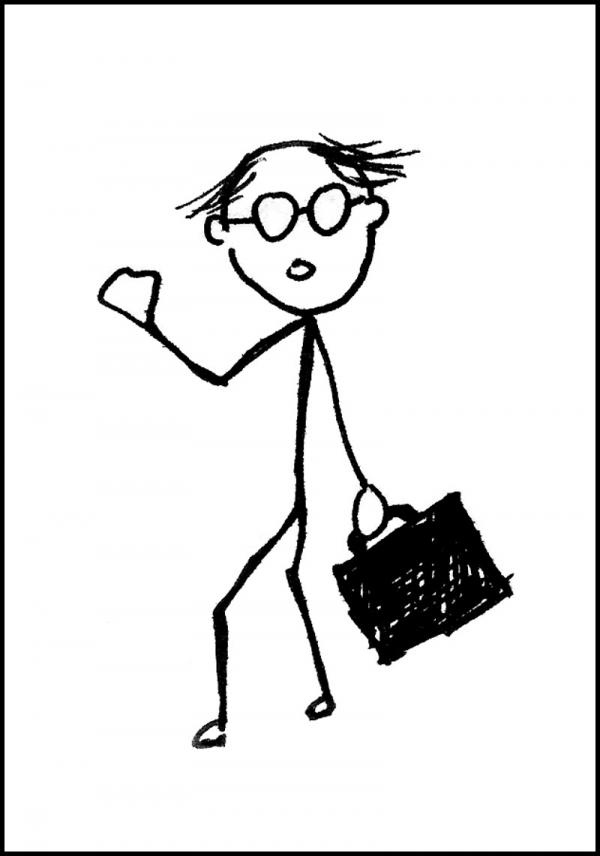
You give him your new work contract to check. He gives it back to you later telling you it’s fine.
One week later, you’re working in a five-star hotel for just 3 cents an hour.
Terry completely overlooked that important detail.
But at least the hotel’s nice – it overlooks the best part of town on one side and the ocean on the other.
So “overlook” can mean “to miss an important detail” and (for a room or a hotel or a house) “to have a view from above”.
10. Hysterical
“Hysterical” can mean either “out of control with emotion” or “funny”.
Think about those classic films from the ‘40s where people would hear bad news and start screaming and screaming until the hero slapped them in the face, and they became “rational” again. That’s a hysterical reaction.
Also it’s a ridiculous part of any film.
Meanwhile, that time my brother accidentally spilled a whole tub of grated Parmesan cheese on his head? It was absolutely hysterical. My mother wanted to get angry, but she just ended up laughing uncontrollably with us.
It’s probably worth noting that we were kids at the time.
Did you enjoy reading this post?
If so, you might also like the following articles.
- 11 Retronyms
- 12 Meronyms
- 12 Heteronyms
- 13 Eponyms
- 15 Heterographs
- 16 Capitonyms
- 36 Acronyms
- Exonyms & Endonyms
Gabriel Clark, LOS Consultant & Clark and Miller Co-founder
